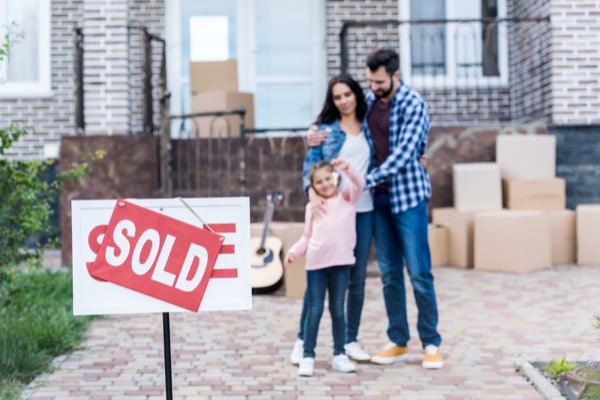Is homeownership is one of your top goals? If so, you may be wondering how you should know when you’re ready to buy a home. Every homebuyer’s experience is a bit different, depending on factors like their budget, location, and credit score. However, there are some common signs that show you’re ready to take the plunge into homeownership. Here are five indicators that you’re on the right track to purchasing a home!
Your credit is in good standing
A lender will take a good look at your credit score before they approve you for a mortgage. If you want to buy a home, you’ll have to show your credit is in good shape. The higher your credit score, the better products and rates you can get from a wider range of lenders. Lower scores indicate you may have had issues with debt or missed payments in the past. Unfortunately, this can turn many lenders away from you. While you can still secure a mortgage with a lower credit score, it will likely come with higher interest rates and be harder to secure. You may be ready to buy a home if your credit score is around 650 or above. Read more about your credit score and how to improve it here.
You have a stable job and income
Of course, you will need money to pay for your mortgage, closing costs, and down payment. This means you should have a steady job and income to support the expenses you’re about to take on. It might not be a great time to buy a home if you’re very new to your job, for example, or are thinking about quitting your job. You should be fairly established in your position, and have confidence your income will either remain the same or increase. This can be tricky for self-employed individuals, who don’t have traditional forms of income or proof of cash flow, even if they make lots of money. If you’re self-employed, the mortgage process will look different for you, but that doesn’t mean you can’t get one. Get in touch with a broker like me to discuss your mortgage options if you’re self-employed and ready for homeownership!
You’ve been saving for a down payment
Buying a home is a long process, one that begins way before you pick the home you want to live in. You need to save up for a down payment, which is your biggest upfront cost. Your down payment must be at least five per cent of your home’s purchase price, and at least 20 per cent to avoid paying for mortgage default insurance. This amounts to thousands of dollars upfront, even at the minimum amount. If you’ve been actively saving and contributing to a down payment fund for a few years, you may have enough saved up to buy a home, depending on your budget. If you haven’t started saving yet, you’re likely not quite ready to buy a home. To get the ball rolling, you can start adding to an account dedicated to a down payment for the future. You can also set up automatic monthly contributions, so you don’t forget to add to this account or put it on the back burner.
You can handle debt
Even if you’re prepared and ready to buy a home, you will still have debt. This isn’t a bad thing, as buying a home is an asset that will likely appreciate in value. If you’re confident in your purchase, having this form of debt is okay. You just need to be ready for the amount of debt you’re taking on, and be sure you can manage the necessary payments to lower your debt. Sometimes, people get overwhelmed when they see just how much they owe once they buy a home. It’s important to know what kind of loan you’re looking at, as well as your timeline for paying it off, before buying a home.
You have a rainy day fund
Finally, you should have an additional emergency fund on top of your regular accounts. Once you buy a home, you’ll have a considerable amount of debt to pay off. You never want to find yourself in a situation where you can’t make your payments. An emergency fund can be your safety net if you lose your job suddenly or experience another loss in income. Ideally, you should have three to six months’ worth of money saved up, meaning you can get by for that long in terms of your mortgage payments and other life expenses. You may also need an emergency fund if your home needs sudden repairs. If you have a rainy day fund set up, this is another good sign you’ve been thinking ahead and are ready to buy a home.
Beyond these positive signs, the most important thing to consider is whether you truly want to own a home. Don’t feel pressured into homeownership if you don’t think you’re ready for it. This can cause lots of stress and financial troubles down the road. However, if you believe you’re ready to buy a home and are looking forward to taking that step, reach out to a mortgage professional! As a broker, I can guide you through the home buying process and help you ensure you get the right product for your needs.
If you’re interested in buying a home, get in touch with me!
